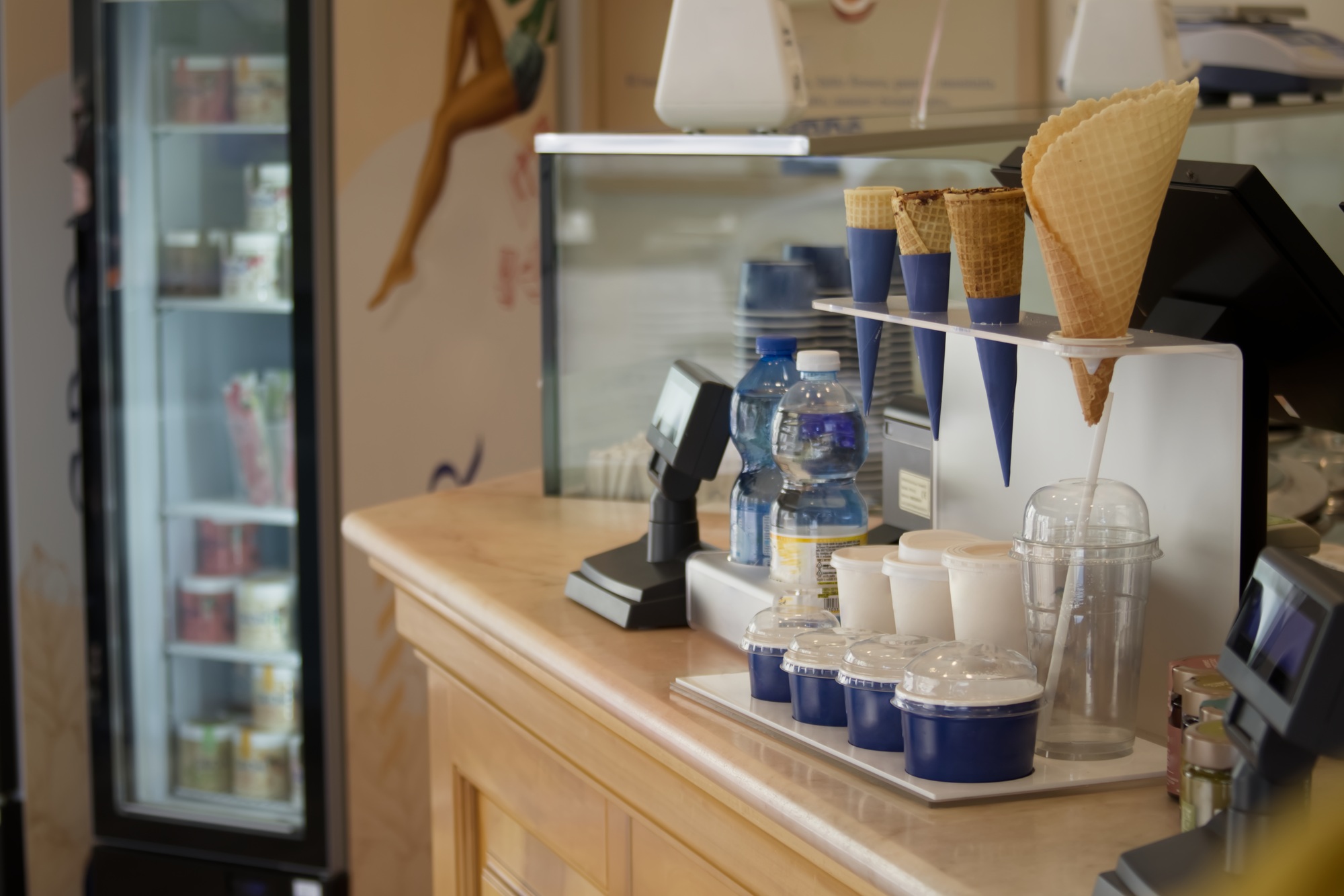Key Takeaways

- A well-structured coffee business plan serves as a roadmap, helping define your goals and attract investors while outlining vision, market strategies, and financial projections.
- Conducting thorough market analysis, including consumer trends and competitive landscape, is crucial for effectively tailoring your offerings and positioning in the coffee industry.
- Exploring various coffee business models, such as independent shops or franchises, allows you to select a strategy that aligns with your vision and target market.
- Identifying diverse revenue streams, including coffee sales, food offerings, retail items, and events, strengthens your financial outlook and maximizes profitability.
- A strategic operational plan focused on sourcing quality supplies and choosing the right location helps ensure successful daily business functions and customer satisfaction.
- Implementing a robust marketing strategy through effective branding, social media engagement, and Email marketing enhances customer attraction and loyalty in a competitive market.
Starting a coffee business can be an exciting venture, especially with the growing demand for specialty brews and unique café experiences. Whether you’re dreaming of opening a cozy coffee shop or launching a mobile coffee cart, having a solid business plan is crucial. It’s not just a roadmap for your journey; it’s a tool that helps you define your goals and attract investors.
Overview of Coffee Business Plan

Creating a coffee business plan involves several critical components essential for your success. A clear business plan outlines your vision, defines your target market, and details your marketing strategies. You focus on developing an attractive menu, sourcing quality beans, and establishing a distinctive brand identity. This plan acts as a roadmap for your journey and helps set measurable objectives.
Your business plan should include financial projections, covering start-up costs and ongoing expenses. Listing anticipated revenue streams, such as coffee sales, merchandise, or events, provides clarity on your expected financial performance. Establishing a detailed plan enables you to attract investors by showcasing your potential for profitability.
Market analysis plays a significant role in your business plan. Identifying trends in the coffee industry, evaluating your competition, and understanding customer preferences inform your strategy. A strong understanding of these elements allows you to adapt quickly to changing market conditions, increasing your chances for success as you start a business.
Incorporating these components into your coffee business plan sets the foundation for achieving your goals and navigating the complexities of launching a small business.
Market Analysis

Understanding the market is crucial for developing a successful coffee business. Analyzing consumer trends, target demographics, and the competitive landscape helps you make informed decisions and shape your business plan effectively.
Target Audience
Identifying your target audience is essential in the coffee industry. Shift your focus to niche markets, like millennials or health-conscious consumers, to tailor your offerings. Research shows that 78% of millennials prefer specialty coffee choices, which indicates growing demand for unique flavors and high-quality products. You may also encounter frequent coffee drinkers, who consume three or more cups daily, presenting opportunities for subscriptions and loyalty programs.
Competitive Landscape
The competitive landscape in the coffee sector is dynamic. The coffee market, valued at over $450 billion globally, features both large chains and small businesses. Competing effectively necessitates understanding your competitors’ strengths and weaknesses. Local roasters and specialty shops in your area can serve as benchmarks. Differentiating factors like innovative menu items and sustainable sourcing practices serve to establish your unique value proposition. Notably, brands focusing on premiumization and sustainability see increased customer loyalty, aligning with the latest industry trends.
Coffee Business Model

A solid coffee business model provides the structure and strategy to guide your small business. Understanding various models helps you determine what aligns best with your vision and target market.
Types of Coffee Businesses
- Independent Coffee Shop: Operate a privately owned, unique shop that allows you to curate your brand, menu, and atmosphere. This model enables you to connect deeply with your community by tailoring offerings to local preferences.
- Franchise Coffee Shop: Align with an established brand under a franchise agreement. Franchisees pay royalties and fees to the franchisor while gaining benefits like training and marketing support. This model leverages brand recognition and economies of scale, making it a less risky option for those looking to start a business.
- Specialty Coffee Shop: Focus exclusively on high-quality, artisanal coffee beans sourced from specific regions. This model attracts discerning customers who appreciate unique flavors and craft brewing techniques, allowing you to stand out in a competitive market.
Revenue Streams
- Coffee Sales: Generate primary income through selling different types of brewed coffee, espressos, and specialty drinks. Offering seasonal or limited-edition beverages can increase demand.
- Food Offerings: Expand your menu with baked goods, pastries, and light meals. Food sales complement coffee purchases and enhance customer experience, increasing average ticket size.
- Retail Sales: Sell packaged coffee beans, brewing equipment, and branded merchandise. Retail sales provide additional revenue and promote brand loyalty.
- Events and Classes: Host coffee tasting events, brewing workshops, or barista training sessions. These experiences draw new customers and establish your business as an expert in the coffee industry.
By selecting a suitable coffee business model and identifying diverse revenue streams, you create a well-rounded business plan that maximizes your chances of success.
Operational Plan

An operational plan outlines the daily functions of your coffee business, detailing essential strategies for sourcing, supply chain management, location, and setup.
Sourcing and Supply Chain
Sourcing quality coffee beans and supplies is fundamental for your success. Identify reliable suppliers that align with your quality standards. Establish contracts that guarantee competitive pricing and timely delivery. Create a system for tracking inventory levels, ensuring you maintain optimal stock without over-ordering. This system helps reduce waste and improves cost efficiency, crucial for a small business.
Consider diversifying your suppliers to mitigate risks associated with supply chain disruptions. Utilize local roasters to create partnerships that reflect freshness, supporting your community while enhancing your brand’s appeal. Engage with suppliers regularly to stay informed about market trends and price fluctuations.
Location and Setup
Choosing a strategic location is vital for attracting customers. Analyze foot traffic, visibility, and accessibility when selecting your coffee shop’s site. Research demographics in the area to align with your target market.
Design your layout to facilitate an inviting atmosphere, ensuring sufficient seating and flow for customers. Invest in quality equipment for brewing, grinding, and serving, as this directly impacts your product quality. Personalize your space with branding elements, creating a unique experience that customers will remember and promote.
By focusing on sourcing, supply chain, location, and setup, you strengthen your operational plan, setting a solid foundation to start your small business.
Marketing Strategy

A strong marketing strategy attracts and retains customers in your coffee business. Focus on various approaches to maximize your outreach and engagement.
Branding and Positioning
Branding establishes your coffee shop’s identity and differentiates it in a crowded market. You should:
- Define Your Brand: Articulate your mission and values. Consider the unique aspects of your shop, like sustainable practices or specialty blends.
- Create Visual Elements: Develop a recognizable logo and consistent color scheme that resonates across all platforms.
- Position Your Offer: Identify your target market, such as millennials or health-conscious consumers, and tailor your brand message to meet their preferences.
Promotional Tactics
- Social Media Marketing: Engage with potential customers on platforms like Facebook and Instagram. Regularly post updates, interact with your audience, and share special offers to keep your coffee shop top-of-mind.
- Search Engine Optimization (SEO): Optimize your website and Google Business Profile for local visibility. Use high-quality photos and relevant keywords to enhance search rankings.
- Email Marketing: Build a subscriber list to keep customers informed about promotions, new menu items, and events. Regular newsletters reinforce customer loyalty and encourage repeat visits.
Financial Projections

Financial projections are vital for illustrating your coffee shop’s potential to investors and lenders. These projections encompass startup costs and break-even analysis, crucial for a successful small business plan.
Startup Costs
Startup costs include initial expenditures required to launch your coffee shop. Carefully outline these expenses to manage your budget effectively. Common costs encompass:
- Equipment Purchases: Consider espresso machines, grinders, blenders, and seating.
- Lease Arrangements: Include deposits and first month’s rent for your location.
- Renovation Expenses: Factor in costs for design, decor, and necessary permits.
- Licensing Fees: Account for the necessary permits and licenses to operate legally.
- Initial Inventory: Stock up on coffee beans, food supplies, and office materials.
Understanding these costs helps you create a precise financial plan that attracts investors and ensures adequate funding at launch.
Break-Even Analysis
Break-even analysis determines the sales volume needed to cover your costs. Achieving this point allows your business to transition from a loss to profitability. Key components include:
- Fixed Costs: Calculate expenses that do not change with sales volume, such as rent and salaries.
- Variable Costs: Include costs that fluctuate with sales levels, like ingredients and hourly wages.
- Sales Price: Identify your average sale price per product, essential for projecting revenue.
- Sales Volume: Estimate the number of products you need to sell to reach the break-even point.
Performing a break-even analysis enables you to set achievable financial goals, ensuring your coffee business remains financially viable.
Conclusion

Starting a coffee business can be an exhilarating journey filled with opportunities. With a well-crafted business plan you’ll not only navigate the complexities of the market but also stand out among competitors. Focus on your vision and target audience while ensuring your menu and branding reflect your unique identity.
By emphasizing quality sourcing and effective marketing strategies you can attract and retain loyal customers. Keep a close eye on financial projections to maintain profitability and ensure long-term success. With dedication and a clear roadmap you’ll be well on your way to brewing a thriving coffee venture.
Frequently Asked Questions

What are key components of a coffee business plan?
A solid coffee business plan includes defining your vision, identifying your target market, and outlining effective marketing strategies. It should also feature an attractive menu, quality bean sourcing, a distinctive brand identity, financial projections, and a thorough market analysis to understand industry trends and competition.
Why is market analysis important for a coffee business?
Market analysis helps entrepreneurs understand consumer trends, target demographics, and the competitive landscape. By identifying a specific audience, such as millennials or health-conscious consumers, they can tailor their offerings to meet customer preferences and enhance their competitive advantage.
What coffee business models can I choose from?
Common coffee business models include independent coffee shops, franchise coffee shops, and specialty coffee shops. Each model has its unique advantages and can align with various visions and target markets, allowing entrepreneurs to select the best fit for their goals.
How can I create a strong marketing strategy for my coffee shop?
A strong marketing strategy should define your brand identity, create visual elements, and tailor messaging to your target market. Implementing promotional tactics like social media marketing, search engine optimization (SEO), and email marketing will enhance visibility and foster customer loyalty.
What startup costs should I consider for opening a coffee shop?
Startup costs for a coffee shop typically include equipment purchases, lease arrangements, renovation expenses, licensing fees, and initial inventory. Understanding these expenses is crucial for managing your budget effectively and ensuring financial viability.
How can financial projections benefit my coffee business?
Financial projections illustrate your coffee shop’s potential to investors and lenders. They help you understand startup costs, break-even analysis, fixed and variable costs, and required sales volume, enabling you to set achievable financial goals and maintain profitability.
Image Via Envato



